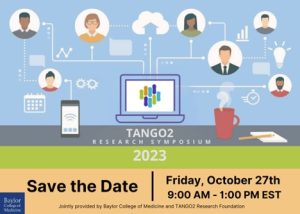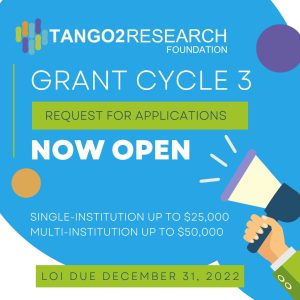NATURAL HISTORY STUDY
PARTICIPATION IS CRITICAL
Participation in this study by as many patients as possible is critical in learning more about how to prevent crisis, treat those children currently in crisis and begin the work of finding new treatments and therapies for TANGO2 deficiency disorder.
Click Here to Get Started!Study Contacts: Dr. Maria Arrendondo
Email: tango2.research@bcm.edu
Document/Records Fax Number: 713-798-5950
Researchers at Baylor College of Medicine & Texas Children’s Hospital in Houston, Texas are conducting research on TANGO2 deficiency disorder. The purpose of this study is to gather medical information to develop a patient registry and to collect biological samples on children/parents for future studies. The researchers are requesting medical history and family history from the participating families. Diagnostic study results such as electrocardiograms, electrophysiology studies, echocardiograms, cardiac catheterization records and prior testing for genetic conditions will be requested. Parents will be asked to sign medical release to access prior hospitalization records. If skin fibroblast cell line has been established previously in children in clinical/research labs, parents will be asked to provide medical release to obtain these cell lines as well.
All records are welcome – including those who also have 22q Deletion/DiGeorge syndrome as well from those children who have passed.
Why Should I Participate?
- A natural history is the single best avenue to study traits of TANGO2 deficiency disorder and how these traits progress over time
- With so little currently known about TANGO2, the collective data in a natural history study provides a resource to physicians that can potentially help treat children in crisis today
- A natural history study can help identify and prioritize areas of focus for future research
- The natural history study provides the beginning of a centralized patient registry – critical for future clinical trials around treatment and management of the disease
- A natural history study provides the environment to establish both tissue and blood repositories (biorepositories). This biorepository is the basis for researchers studying the disease at the cellular or molecular level











